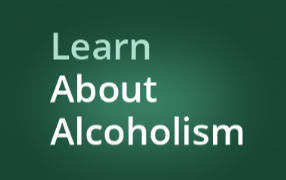Alcoholism in the Workplace
Alcoholism in the workplace has a profound impact on safety and productivity. Most heavy and binge drinkers have jobs, with more than sixty percent employed as full-time workers.
According to the U.S. Office of Personnel Management, the cost of alcoholism at work ranges from $33 billion to $68 billion a year with absenteeism estimated to be four to eight times greater among alcoholics and alcohol abusers.
Alcohol does not just affect the user: One in five employees have reported injuries or exposure to dangerous conditions because of a co-worker’s drinking, or have had to go beyond their regular work responsibilities to compensate for an employee who was alcohol-impaired.
The National Institute on Alcohol Abuse and Alcoholism reports, however, that a place of employment can be an effective location for preventing or identifying alcohol-related problems.
Employers and employees, therefore, can work together to create a safe and productive workplace by identifying high-risk situations and developing policies to prevent or offset them.
What are the Effects of Alcoholism in the Workplace?
Employees abusing drugs or alcohol frequently show up to work late, may have trouble concentrating because of hangovers, get involved in more accidents than their sober co-workers, and take longer leaves of absence when injured. Absenteeism can also increase because of substance abuse.
Identifying these behaviors early on leads to an increased likelihood that the worker will receive help for his/her problems before they become unmanageable or pose a threat to self or others. Each employee has a responsibility for becoming educated about alcoholism and learning what he/she can do if facing such a problem at home or work.
Assessing the Situation
Recognize that alcoholism is not just a social problem or disease, but also an occupational hazard. If there are colleagues who you suspect of showing signs of alcohol abuse, talk with them in private about their behavior. Allow the person to make the decision to seek professional help for him/herself or suggest counseling services yourself.
It may be advisable, however, to refer the worker’s supervisors and/or family members for additional input when confronting someone at work about drinking problems because education is important for everyone involved.
The most effective way to reduce injuries due to alcohol is through self-report. “Alcohol Screening Programs” have been implemented in some workplaces where employees are asked to take occasional breathalyzer tests. This type of program has been shown to reduce accidents and improve compliance with safety rules.
Employee Assistance Programs, or EAPs, are workplace-based programs that provide employees access to counseling for personal problems such as stress, marital difficulties, depression and alcohol/substance abuse. An evaluation of the effectiveness of EAPs found that those who used them were more productive than those who did not participate in these services.
Employees encountering problems with the use of alcohol by themselves or others can turn to EAP (employee assistance programs). These workplace-based services are designed to help employees and their family members address personal issues that affect job performance.

The goal is to enhance employee wellness, promote safety in the workplace, create a healthier environment for everyone involved, decrease absenteeism, increase productivity and reduce medical claims/costs. As the EAP provider, your organization can have direct access to counseling professionals qualified in alcohol abuse treatment.
Employees also have a role in identifying problem drinkers and can play an active part in curbing alcohol abuse at work. People who observe the following behavior patterns should consider them warning signs:
- People who drink before, during, or after their shift
- People whose co-workers complain about their behavior while under the influence of alcohol
- People experiencing personality changes because of drinking
- Workers taking extra drinks from a spirit cabinet or getting drinks from home for others when they normally do not drink.
In many organizations, supervisors are responsible for managing employee behaviors that might lead to accidents or incidents of misconduct. Organizations have found that performance reviews with feedback on work-related expectations and limits often reduce the potential for conflict and problems in the workplace.
Employers should conduct a risk assessment to identify potential issues that may arise from alcohol use, and have a policy for addressing drinking at work. The EAP provider can help assess the risks involved and implement an appropriate policy.

Programs to Combat Alcoholism in the Workplace
To combat alcoholism in the workplace, many employers are creating comprehensive drug-free programs. Typically, these feature five components:
- A policy that explains why the program is being implemented (such as protecting worker health and well-being); what behaviors are not allowed; and a clear explanation of what will happen if the policy is violated.
- The training of supervisors so that they recognize and keep track of performance problems that may be the result of alcohol abuse, and can make referrals for testing. Supervisors should not take it upon themselves to diagnose or counsel employees who may have alcohol issues.
- Providing employees with a thorough alcohol education program to include a review of the company’s policy, an explanation of alcohol addiction, how that addiction can affect work performance as well as one’s personal and family life, and how to get help if they suspect they have a problem.
- Creating a means of support for employees who have an alcohol problem. Employee Assistance Programs (EAPs) have proven to be a very effective means for workers and their families to get counseling and other services and are a much more constructive option than firing the employee.
- Drug testing can be a constructive tool for finding conclusive evidence of alcoholism at work, opening the way for confronting the employee, getting them into treatment, or bringing about some disciplinary action. Employers should check to ensure their alcohol and drug testing procedure is in compliance with local, state and federal law before that testing is instituted.
Creating alcohol and drug-free workplace should be a collaborative effort between employers and employees where the needs of both parties are recognized, the right to privacy is protected, and mutual respect is a constant.
By working together, organizations can create a more productive workplace by identifying high-risk situations and developing policies to prevent or offset them.

I am a Mental Health Counselor who is licensed in both New York (LMHC) and North Carolina (LCMHC). I have been working in the Mental Health field since 2015. I have worked in a residential setting, an outpatient program and an inpatient addictions program. I began working in Long Island, NY and then in Guelph, Ontario after moving to Canada. I have since settled in North Carolina. I have experience working with various stages of addiction, depression, anxiety, mood disorders, trauma, stages of life concerns and relationship concerns.
I tend to use a person-centered approach which simply means that I meet you where you are and work collaboratively to help you identify and work towards accomplishing goals. I will often pull from CBT when appropriate. I do encourage use of mindfulness and meditation and practice these skills in my own life. I believe in treating everyone with respect, sensitivity and compassion.
I recognize that reaching out for help is hard and commend you for taking the first step. We have professionals available who would be happy to help you move closer to reaching your goals related to your drinking concerns. You may reach these professionals by calling 877-322-2694.
